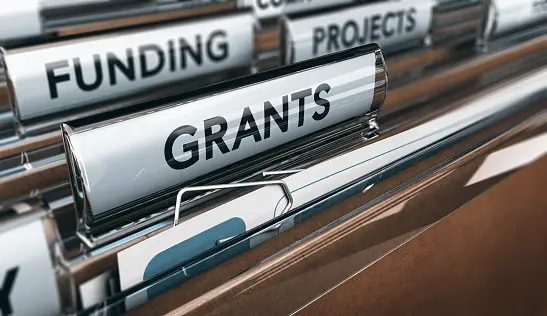How to get grant for nonprofit is one of the questions most nonprofits are asking. We have programs and projects but how do we go about securing grants to enable us accomplish our aim. One of the key factors that can help nonprofit organizations to realize their missions and goals is the availability of grant. Grant is the lifeblood of nonprofit organizations, without it, nonprofits will be incapacitated and will achieve little or no impact.
In this article we are going to show you the several places to find grants, how to begin your grant research and benefits of securing a grant.
What are grants to Nonprofits?
Grants are referred as free money meant for solving a particular identified need in a community. Yes, it is free money given to nonprofit organization by a donor agency to implement a particular project for a targeted population located in a specific location that will lead to the betterment of the beneficiaries involved or for the community.
For instance, Donor agency A award a grant sum of $500,000 to ABC Nonprofit organization to 500 empower economically disadvantaged young people in Lugbe community on Entrepreneurship skills.
The $500,000 given to ABC Nonprofit organization to implement the above project is a free money and non-refundable. Grants can be awarded to nonprofits, Individuals and even small business owners for a particular purpose. Grants are not loans and it stays with the nonprofit that received the grant award.

3 major Sources of Grants to Nonprofits
Sources of grants can be categorized into 3 major groups and they include;
Government Grants:
This is the largest source of grant funding for Nonprofits. Government grants are available at the federal level, state level and local government level. Government grants provide many funding opportunities for different projects in different areas such as agriculture, defense, housing, education, etc.
Foundation Grants
Foundations are formed by individuals or family for the purpose of providing funding support to nonprofits that implement projects that align with their mission or that address specific cause that interest them.
For Instance, Howard and Geraldine Polinger Family Foundation is an example of a foundation that provides grants to nonprofits whose priority areas are on strengthening families and society, democracy, social justice and combat Antisemitism.
Corporate Grants
They are given by corporations to nonprofit organization that are championing causes that that have holds strong interest to the Corporations.
For Instance, Bank of America Charitable Foundations award corporate grants to nonprofits whose priority areas are in any of these; Workforce development & Education, Affordable housing, neighborhood revitalization and others.
Where to begin your search for nonprofit grants;
There are things to be in place before you kick-start your search for grants for your nonprofit.
- Your Organization Mission. You have to understand what your organization mission is all about before you commence the grant search process. Knowing your organization mission will help you not to chase every available grant without first verifying if your mission aligns with it. Don’t go about chasing every grant opportunity. Your organizational mission should guide you.
- Consider Location: Most foundations and government grants are location based and even if the grant opportunity aligns with your mission, does your location included? You need to check the locations where the grant awarded will be implemented, if your location was selected.
- Understanding the Donor agency you want to reach out to for grant award. You need to have in mind that different donor agencies fund different projects and programs and you need to ensure you research them thoroughly before setting out to reach them for financial support.
How to Find Grants for Nonprofits
To find grants for your nonprofits, you need to follow the below steps. These steps will guide your search and enable you to go for the best grants that matches with your project.
-
What is your organization mission?
You need to know your organization mission and your priority areas. Knowing what your organization stands for, what problems or needs you address as a nonprofit, who are your target population that you serve and which community do your organization serves will help you as you go about your grant search process.
-
Conduct Your Research
Funding agencies have specific guidelines they include in the Request for Proposals and you are mandated to adhere to the stated guidelines before applying. Conduct your research before applying.
- Eligibility check: Read through the eligibility requirement to ascertain if your organization is eligible to request for grant funding from them. Eligibility requirement differs from one funding agency to another.
- Priority Area: Check the priority area that the funding agency is interested in funding. Funding agencies fund different priority areas. For instance, George-Pacific Foundation priority areas are Education, Enrichment, Entrepreneurship, and Environment. So if your organization priority areas focus on arts and culture, and children. You could see that your organization does not match this grant opportunity.
- Deadline: You have to check the deadline. Many foundations will have an application deadline. Be sure to submit your grant proposal within this period to ensure your grant proposal receives a chance for review.
- Contact Person: Check out for any contact person from the funding agency handling their grant proposal process that you can reach out.
3. Use Grant Databases or Grant Search Engines
There are several grant databases to sign up for where you can get information about grant opportunities released by foundations, corporations and government agencies. Some of the grant databases you can use for your grant research include;
1. Instrumentl
Instrumentl.com tops the list of best grant search engines, it simplifies the process both for new grantees and repeat grantees.
Pros of Instrumentl:
- Instrumentl.com provides a 14-day free trial period, a staff agent who provides a virtual “walk-through” of all its features, and ongoing customer support. Its customer support is awesome and makes your journey through their platform a smooth one.
- It has key information on hundreds of thousands of funders and r and awarded grantees.
- Instrumentl is the best fundraising tool that brings prospecting, tracking and management to one place. It makes simple and easy to prospect, track and manage your grant opportunities.
- The platform offers you additional tools and tips you need in your grant writing and research process.
- It offers intelligent matching based on several criteria, making its results page refined and actionable.
- It has features such as grants tracker, email updates, and links to funder’s websites, their grantmaking history, and their 990s.
- Its collaboration and project management capabilities are top-notch.
You can learn more about what makes Instrumentl different here.
Cons of Instrumentl:
- Instrumentl.com is expensive for nonprofits that are just at the early-stage of operation, as these nonprofits may not be able to afford the subscription fee involved. It’s recommended that only nonprofits over 90K in operating revenue use it and that those who do not meet this criteria focus first on sustainability. If your nonprofits already racks in 90k and more, this tool can help you win more grants after you have paid for the subscription fee.
2. Foundation Directory Online
Pros of Foundation Directory Online:
- Foundations houses a large database of many types of donor agencies including foundations, municipal, and corporate opportunities in all award amounts.
- It’s one of the oldest grant search engine that has been inexistence for years and contain much data.
- It has features such as Filters that allows you to view results easily within the given criteria and graphics that provide comprehensive information or in-depth information about the donor agencies.
- Small nonprofits could actually subscribe to their services because it is a bit affordable. Subscription plans start at a low cost of just over $30 per month for the “essential” level.
Cons of Foundation Directory Online:
- To fully enjoy the benefits of this search engine you need to purchase the Professional level plan which is expensive than the Essential Level costing $200 per month. You see most nonprofits can’t afford $200 subscription fee every month.
- It lacks openness to New Grantees
- It lacks auto-generated intelligent matching as most of the searched are self-directed.
- The platform focuses only on publishing grant opportunities but offers no other grant writing resources, educational materials, project management or collaboration capabilities.
3. Grants.gov
Grants.gov is a great search engine filtered for nonprofits with 501(c)3.
Pros of Grants.gov:
- It is a free search engine.
- It contains comprehensive database of government grants in many different sectors, everything from grants for research to capital projects and major systems transformations.
- Government grant opportunities grants higher dollar value amounts compared to foundation grants running in several million.
Cons of Grants.gov:
- It is complicated and not user-friendly making it difficult to navigate search capabilities.
- No good customer service support.
- It is not easy to understand the eligibility criteria for some grants and the length of the applications make these opportunities reserved for mainly well-established organizations with dedicated development teams.
4. GrantStation
Pros of GrantStation:
- Its database contains both charitable organizations and government opportunities.
- It lists opportunities that are US-based as well as those for Canadian organizations.
- Its Membership is all encompassing and it gives users access to many tools which are useful in grantmaking – webinars, informational resources, and articles on various topics of interest. It is refer to as , a “one-stop shop” for all things grants-related.
- It has been long in existence since 1999.
- They run regular sales through affiliates such as TechSoup which allow you to get access at a big discount.
Cons of GrantStation:
- It does not offer free trail and monthly payment subscription. Its annual subscription fee is $699.
- It lacks auto-generated matching tool even though is a robust database and search engine.
- Although it has lots of online tutorials but it lacks personalized customer support.
5. GrantWatch
GrantWatch serves the nonprofit sector .
Pros of GrantWatch:
- GrantWatch contains a database of grant opportunities from foundations and federal, state, and local governments.
- It offers many subscription plans and prices that can suit any size of nonprofits, which makes it within reach for most nonprofits, and even a low-cost weekly option at $18/ week. The highest level is only $200 annually.
- It offers advanced search features that filter the grant opportunities you need base on specific focus area, funding type, or geographic area.
- The platform contains grants opportunities for small businesses.
- It contains a glossary of “grantmaking terms.”
- When you subscribe to its higher level subscription packages, you will be able to provide features such as deadline reminders and grant opportunity updates.
Cons of GrantWatch:
- Not user friendly, it is difficult to navigate through its platform.
- It lacks personalized or intelligent grant matching feature.
- It lacks some features that are important to writing a successful grant proposal, tracking calendar, collaboration tools and detailed information about the funder, even though it has a low annual subscription fee of $200
6. The Catholic Funding Guide
Pros of The Catholic Funding Guide
- It contains only faith-based funding agencies and International Catholic Funding agencies.
- Its ha cheap annual subscription fee of $145
Cons of The Catholic Funding Guide;
- Its search functionality is pretty basic.
- Its database is a bit outdated in terms of design.
- Its grant opportunities listing are limited.
- It’s not user friendly.
7. GrantScape
Pros of GrantScape;
- GrantScape offers federal, state, local, and foundation grant sources. It contains up to 180,000 grantors and approximately 8,795 available grants housed within the database.
- Its subscription fee is affordable.
- It is rich in other resources.
CONS OF GRANTSCAPE
- It doesn’t offer a free trial for their grant database.
8. Grant Forward
This database covers the whole ecosystem of funding including grants, sponsors, pre-solicitations, and the funded awards of about 190,000+ grantors. It offers a free trial of about one month. Subscribers access notifications of upcoming grant opportunities
The subscription cost per year ranges from $1,100-4,400 and is determined both by funding size and the population of your organization (students and employees).
4. Track Your Applications before and after submission
By now you must have subscribed to any of the above grant database, as you go through the available grant opportunities, select the ones that match your mission and you are fully eligible to apply, the next thing to do is to create a spreadsheet and a calendar to your grant applications. You can set reminders of deadlines to ensure you submit your grant proposals on time. Then once you submit your proposals, you should track status of your submitted applications.
Top Grants for Nonprofits
1. The Bill and Melinda Gates Foundation
The Bill and Melinda Foundation is one the largest philanthropic organization in the world that provides funds to nonprofit organizations fighting diseases, poverty and inequity around the world.
Visit their website to apply for grant funding.
2. 3M Foundation
3M Foundation provides grants for nonprofits that help underrepresented individuals advance in STEM fields, climate change, and various global humanitarian relief efforts.
Visit their grant guidelines to determine your eligibility before applying.
3. The Carnegie Foundation
The Carnegie Foundation provides grants for nonprofits that specialize in state-based work, as well as those bringing higher education and resources to African scholars.
To apply, you must first submit a letter of inquiry to start the application process.
4. The Coca-Cola Foundation
The Coca-Cola Foundation is dedicated to giving back 1% of its prior year’s operating income to nonprofit organizations that empower women, enhance communities, protect the environment, and advance education.
To apply ,You must register on their website and pass the eligibility quiz.
5. Walmart Foundation
Walmart Foundation provide grant opportunities for nonprofits involved in promoting diversity, advancing sustainability, improving nutrition, and disaster relief and preparedness.
Visit their website to learn more about eligibility and applying online.
6. Ford Foundation
Ford Foundation provide grants for nonprofits that specialize in civic engagement, fighting inequality, and promoting environmental sustainability.
Submit your application using their online form.
7. Amazon Web Services Imagine Grant
Amazon Web Services Imagine empowers nonprofit organizations that leverage technology to advance their projects and goals.
Visit their website to download their guidelines and learn more about applying.
8. Bank of America
Bank of America provides grants for nonprofits that seek to promote hunger relief, homelessness relief, stable housing, environmental sustainability, and building vibrant communities rich in art and culture.
Visit their website to submit an online application.
9. Google Ad Grants
Google ad credit to help boost your nonprofit organization’s marketing efforts.
Visit their website to sign up online.
10. Google for Nonprofits
Google for Nonprofits offers their products and tools to help nonprofit organizations run their operations.
Apply online for a Google for Nonprofits account.





I love your guidelines and would wish to continue consultation with your site for further assistance. I have a registered Non Profit Organization in Kenya/is stuck.